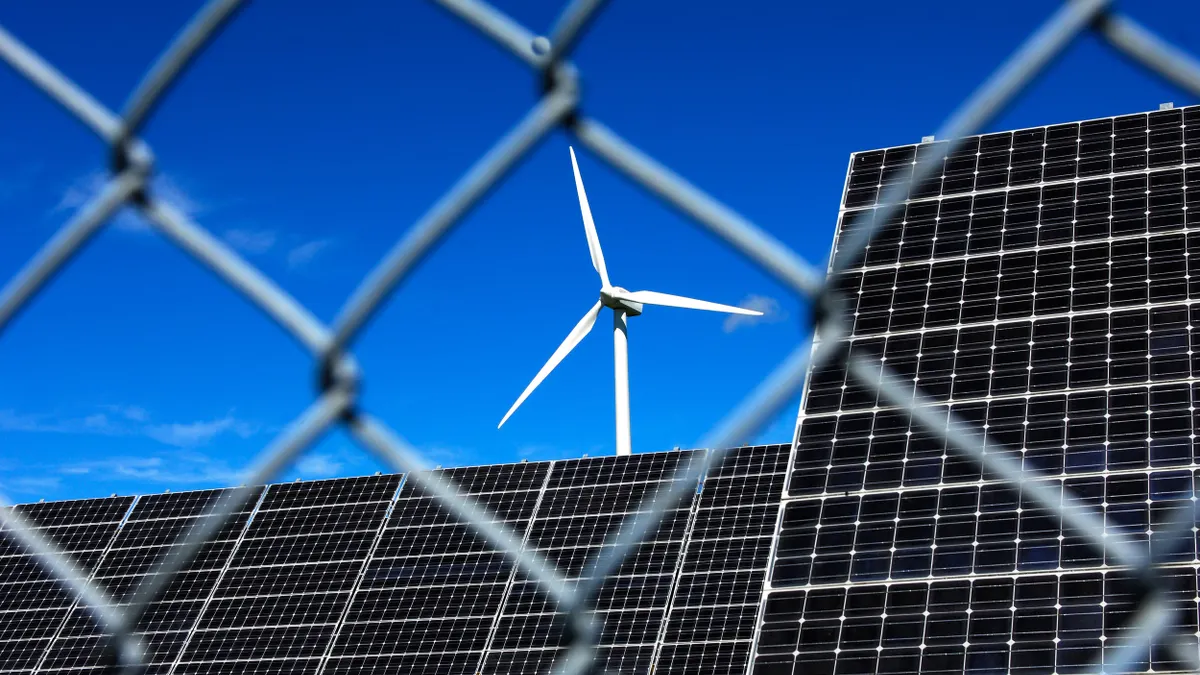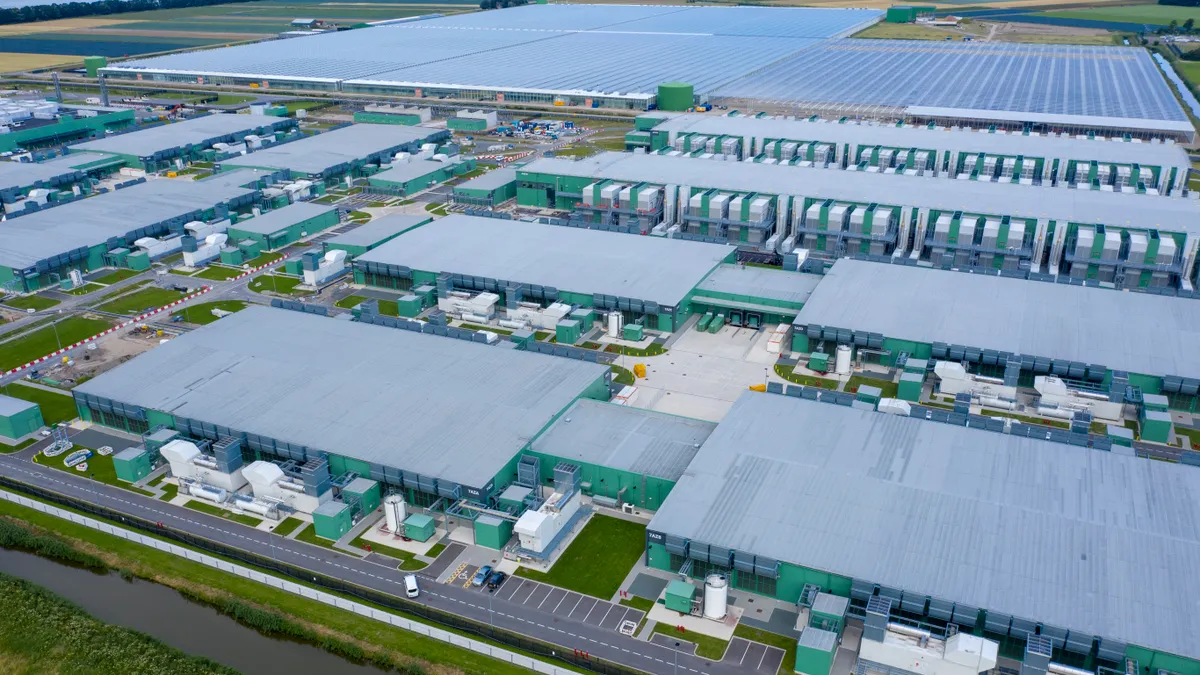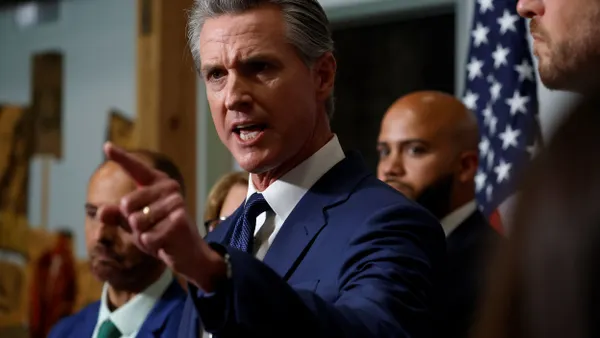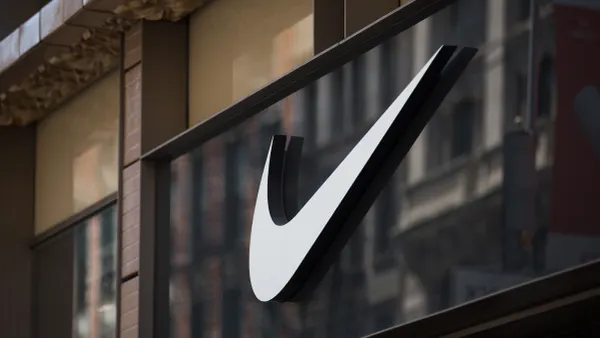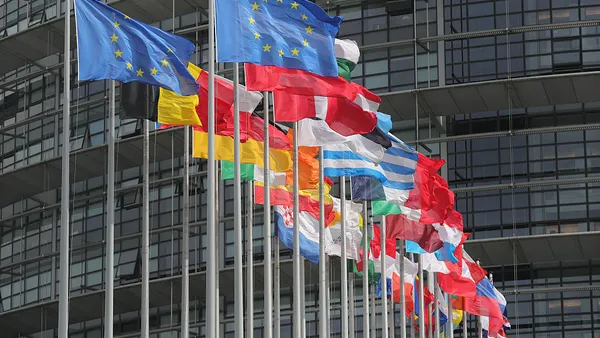Dive Brief:
- A coalition of 16 Republican state attorneys general sent letters to Amazon, Google, Meta and Microsoft last month, probing the companies’ usage of renewable energy certificates to offset their own energy usage and account for emissions reductions.
- The state officials, led by Montana AG Austin Knudsen, said in the Sept. 24 letter they were writing to “raise serious concerns” about the tech companies’ respective claims that they match 100% of their energy usage with renewable energy by utilizing renewable energy certificates that are not tied to a specific project.
- The AGs said purchasing these type of certificates, known as unbundled RECs, “does not mean that the companies are using renewable energy, or that they are reducing emissions,” the letter said. The AGs said such claims “appear deceptive” based on rising energy demands from the sector and the current U.S. grid makeup.
Dive Insight:
Renewable energy certificates give companies the rights to “environmental, social and other non-power attributes” of renewables and are obtained when one megawatt-hour of renewable-generated electricity is delivered to the grid, according to the Environmental Protection Agency. Unbundled RECs, while not tied to a project, provide renewable energy projects additional sources of income to keep projects operating and incentivize new generation, according to trade group American Council on Renewable Energy.
In their letter, the attorneys general probed each company’s usage of unbundled RECs, including questions about how they analyzed if additional generation would come online; their energy usage for each of the five years, without considering RECs; how such certificates are used to calculate the company’s energy usage and scope 2 emissions. The AGs also asked the companies how they use RECs to substantiate public energy usage and emissions reductions claims.
“Major tech companies use unbundled RECs to claim that they have achieved 100% renewable energy ‘use’ or ‘consumption,’ and have reduced their emissions,” the letter said. “Both types of claims appear to be deceptive or misleading.”
In addition to Knudsen, attorneys general from Alabama, Alaska, Arkansas, Indiana, Iowa, Florida, Kansas, Missouri, Nebraska, North Dakota, Oklahoma, Pennsylvania, South Carolina, West Virginia and Wyoming signed on.
The use of unbundled renewable energy certificates is credited as a part of each of the companies’ respective strategies for matching energy usage with renewable energy. Unbundled RECs represent “a growing proportion of total renewable project revenue” and are “the primary way for many entities to claim the environmental attributes represented by renewable electricity,” according to ACORE.
Amazon said in an email to ESG Dive Friday that it has received and is reviewing the letter from the state AGs. Additionally, it said it expects the number of unbundled RECs it purchases will decrease over time as additional projects come online.
Amazon announced last year that it matched 100% of its operational electricity usage with renewable energy in 2023, seven years ahead of its 2030 target. The e-commerce and tech company said at the time that it invested in more than 500 renewable energy projects, but also said it purchases both bundled — which are purchased in connection to a project — and unbundled RECs. Amazon said the usage of RECs allows it, and any other renewable energy purchaser, to account for energy it has bought, the company said in a 2024 blog post explaining how it reached its goal.
“No company with complex and growing operations is able today to only consume renewable energy — there simply aren’t enough sources in enough locations, and it takes a while for new projects to come online,” the blog said. “Like most companies with ambitious climate goals like ours, we also purchase RECs.”
Google said it first matched 100% of its operational electricity with renewable energy in 2017 by annually purchasing the same amount of renewable energy, through physical energy purchases and RECs, as it uses in megawatt-hours. The company also has a goal to run on 24/7 carbon-free energy on every grid it operates in by 2030 and reported reaching 70% hourly matching in the U.S. in 2024 in its latest sustainability report.
Meta also said in its most recent sustainability report it has maintained net-zero across its scope 1 and scope 2 emissions since 2020. The social media and tech conglomerate said it achieved that goal by becoming one of largest corporate procurers of renewable energy and making renewable procurement a key part of that strategy.
Microsoft has a goal to hit net-zero across its operations by 2025, which it plans to achieve through energy efficiency, decarbonization and reaching “100% direct renewable electricity by 2025,” according to a sustainability fact sheet. Microsoft said in the fact sheet it “procures enough renewable electricity to match 100% of our global electricity consumption” and, when it is unable to do so in markets it operates in, will look to purchase an equivalent volume of renewable electricity from nearby markets.
The state attorneys have requested a response to both broad and company-specific questions mentioned in the 15-page letter by Oct. 27.
Microsoft declined to comment for this story. Google and Meta did not respond to requests for comment.


